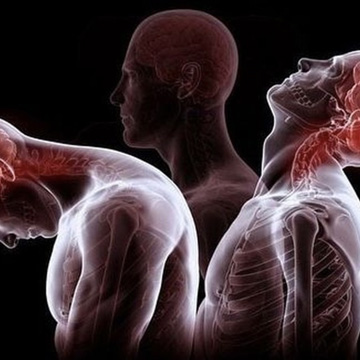Franklin, TN
Medical science has progressed at such an amazing rate in the past several decades, and yet we still do not have a consensus as to what causes migraine headaches. Even though migraines are an affliction shared by more than 1 billion people around the world, the exact cause of these headaches remains a medical mystery. Because there is no proven cause of migraines, certain maladies can be misdiagnosed as migraines. One of these issues is having frequent, severe tension headaches that are caused by temporomandibular joint disorder.
Headaches and the trigeminal nerve

Both TMJ headaches and migraine headaches are different varieties of tension headaches and both involve the trigeminal nerve, to some degree.
Also known as TMJ disorder or TMD, temporomandibular joint disorder occurs due to a dysfunction within the temporomandibular joint itself, which connects the jaw joints to the skull. Any issue with the temporomandibular joint is likely to impact the trigeminal nerve, which is located nearby the joint and carries more sensory input to the brain than any other neural pathway. When TMJ disorder is present, the issue with the joint soon will cause a compression of the nearby blood vessels, which will exert inordinate pressure on the adjacent nerves, including the trigeminal.
For a migraine patient, the onset of a migraine headache leads to a change in brain chemistry. During an attack, serotonin levels decrease and the trigeminal nerve sends signals to the outer covering of the brain, generating pain impulses.
TMJ headaches and migraine headaches have the following symptoms in common:
- Pain, which may be debilitating in nature and impede the ability to function
- Feeling dizzy or light-headed
- Sensitivity to light and/or sound
- Nausea and vomiting
The differences between TMJ headaches and migraines
Migraines do have some symptoms that are specific to that malady. The most identifiable symptom is an aura—a visual hallucination that occurs as a precedent to an attack. A person with TMJ headaches may experience other symptoms indicating the problem, including jaw pain, bite misalignment or limited range of motion in the jaw. Here is a complete breakdown of common symptoms of TMD.
TMJ headaches must be treated differently than other types of tension headaches. Unless the TMJ disorder itself is treated at its root, the headaches will continue to occur at the same, or greater, frequency. Even the strongest headache medications only will manage the severity of TMJ headaches when they occur.
Treatment
According to the Migraine Research Foundation, the majority of patients who suffer from migraines never seek professional diagnosis and treatment.
Likewise, many people who have TMJ disorder may never realize they have the disorder because they do not seek medical help. Both migraines and TMJ headaches must be treated by a medical professional in order to be resolved for good.
TMD treatment in Franklin, Leipers Fork and Thompson Station, Tennessee
If you have TMD or think you may have the disorder, seek the care of a neuromuscular dentist, who is the best qualified medical professional to diagnose and treat your TMJ disorder. Click here to learn more about the importance of neuromuscular dentistry and, to schedule a consultation with Lee Palmer, DDS. Just call (615) 794-0756 or visit us online.
